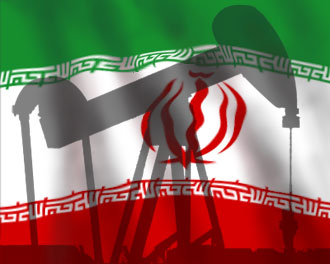Iran has arrested the decline in its oil exports, boosting sales recently to countries including South Korea and Turkey just as US and European sanctions show signs of inflicting economic damage to Tehran, The Financial Times reported..
Iranian oil exports hit a low in July of less than 1m barrels a day, but they increased slightly in August and more significantly in September, hitting 1.2 million barrel per day, according to traders who monitor the sales.
The consecutive monthly recovery comes as Turkey and South Korea recently restarted buying Iranian crude after a hiatus of several weeks. China, India, Taiwan and Japan also bought oil. Tehran also shipped oil and fuel oil to little-known ports in Malaysia and Indonesia, most likely to resell it quietly to Asian refiners, traders said.
"We have seen the low point of Iranian oil exports," a Gulf-based senior oil official said. "Asian countries are buying again."
Iranian oil exports averaged just under 2 million barrel per day in the first quarter, about 1.5 million barrel per day in the second quarter and roughly 1 million barrel per day in the third quarter. If the rate of the most recent weeks is sustained, the country's oil exports could average 1.2 million barrel per day in the fourth quarter.
The increase in oil sales does not mean that Iran's economic difficulties are over. Tehran continues to face huge problems in repatriating its oil revenues as more banks have shut the country's access to US dollar wire transfers, forcing it to accept payment in currencies such as the Chinese yuan and the Indian rupee. Also, in spite of the increase in September sales, oil exports are sharply down over the past year.
Trevor Houser, of New York-based consultancy Rhodium Group, said Iranian oil revenues were down 60 per cent year-on-year. "Tehran is facing a balance of payments crisis," he said, adding that the Iranian rial had fallen more than 30 per cent against the dollar recently.
But the rebound in Iranian oil exports suggests that the combination of plus-$100 a barrel oil prices and generous credit terms that Tehran is offering is enticing some Asian countries to purchase more Iranian oil in spite of US and European political pressure. Iran is allowing some of its customers in Asia to pay in six months, rather than the industry standard of 30 to 60 days, in effect sharply discounting its oil.
Oil officials said it was unclear whether the recovery in exports would translate to a rebound in output because Iran could have sold some of the extra oil from storage. Iranian oil production fell to a 22-year low of 2.85 million barrel per day in August.
The oil market is discussing whether the latest export increase is a one-off or would be sustained over the next few months. Earlier this year, Iranian oil exports briefly recovered, only to fall soon afterwards. This time, however, there are some signs the rebound could be sustained as importers start using Iran's own supertankers to buy the crude oil, bypassing the impact of an EU ban on selling maritime insurance for tankers carrying Iranian crude.
Iran's NITC, the former state-owned company, which is the country's largest owner of crude oil tankers, has told customers it would able to continue shipping with insurance provided by the Iranian-owned Kish P&I Club. Meanwhile, some countries, including Japan, are providing state-backed insurance for tankers carrying Iranian imports.






